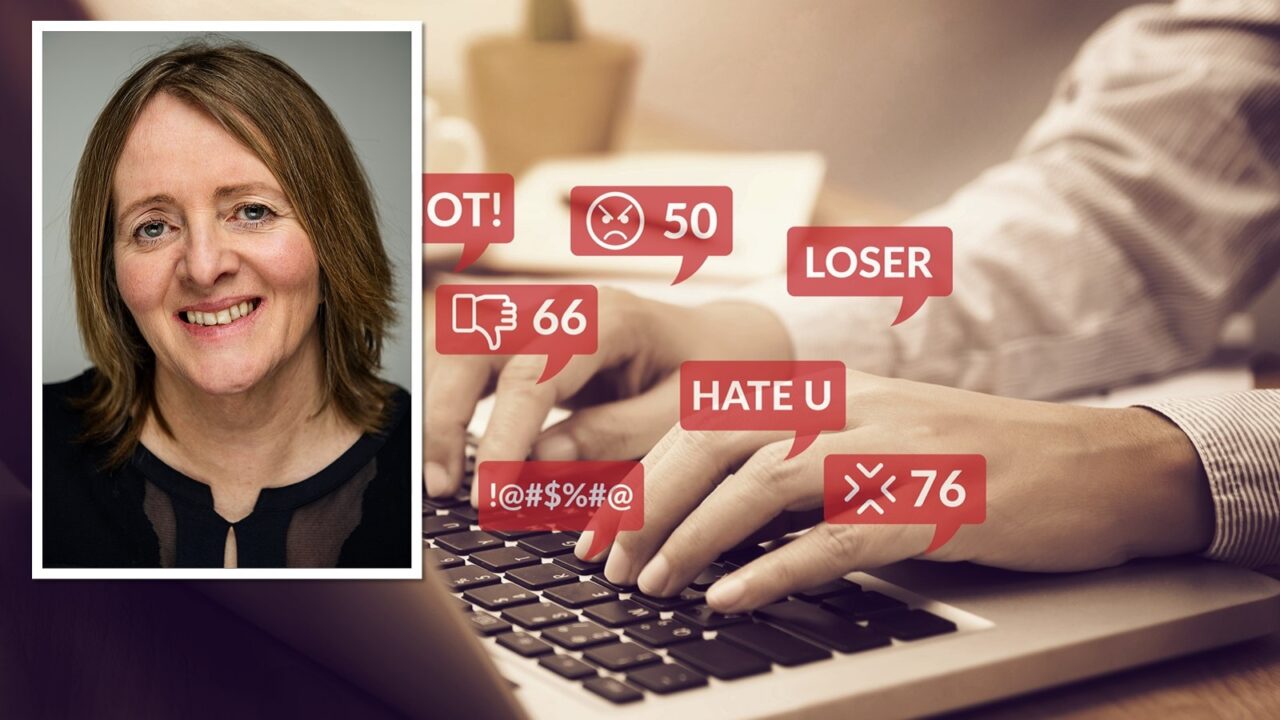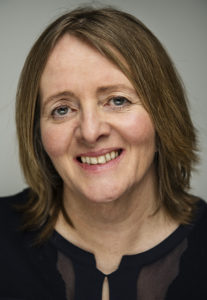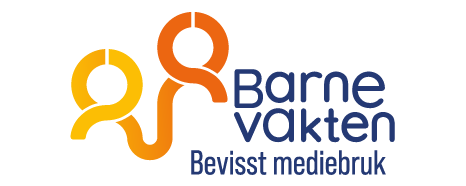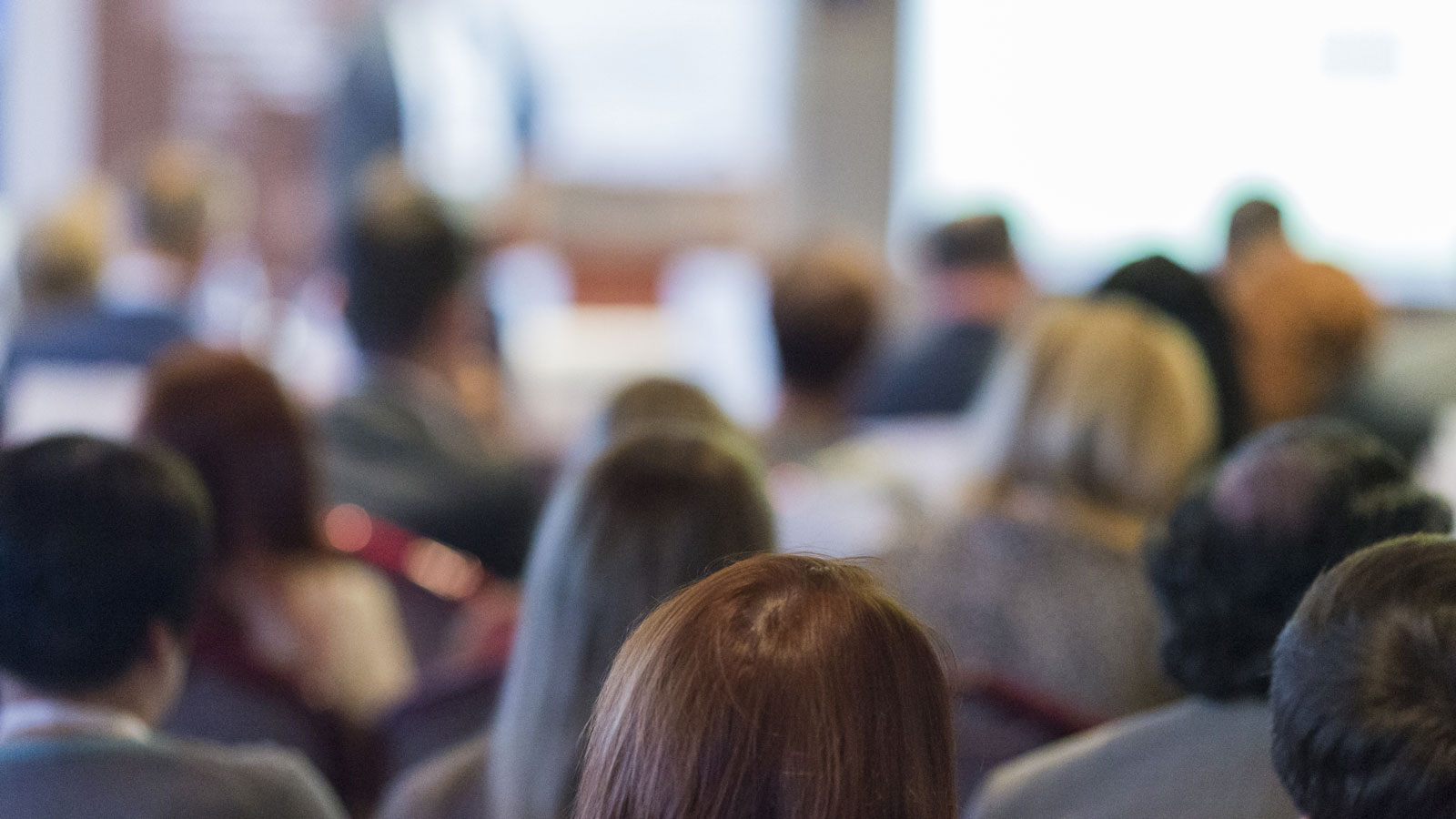
Should children be encouraged to stand up against hate speech?
Choose language in the Google-box below. Some translations may be flawed or inaccurate.
“If you’re just watching other people being bullied in the schoolyard, you are part of the bullying.” It is an attitude that children may have learned. Does the same apply to hate speech, that children and young people should resist when they see ugly statements online?
– Some recommend that children and young people should stand up against bullying and hate speech. We shouldn’t give them that kind of advice. Children must be able to assess this themselves before taking action. In the worst case, the hatred can be turned against the children,» says Anne Birgitta Nilsen who works as a linguist at Oslo Met.
She points out that the children can show support for the victims in other ways without getting bogged down in the comments section.

– You can still sympathize with the person who is exposed. A friendly look can be at least as important if it has happened to someone you know or someone in your class. Often, groups in the comment section get together against whoever is outside. Then you have to be quite tough to stand in the fight, or even have a safe position, says Nilsen.
Get on the case, not the person
Nilsen also warns against digging trenches and urges to avoid throwing remarks against those who are spreading rude comments.
– Rather than attacking the other, you can promote what you think. That one should not agree with what the person in question has written if it is a matter of sharing prejudice. Calling someone a racist is a label that only creates even more unrest. And if the children have come across a hateful statement that they respond to but do not want to enter into the discussion, it is possible to use the reporting system of the social media platform. It can also be a way of speaking up, Nilsen believes.
In order to raise children with good attitudes online, Nilsen encourages adults to be good role models and work to develop children’s empathy.
– Because where do the children really get bad attitudes? It’s rarely something they make up themselves. So here the adults must be good role models by avoiding criticizing the neighbor and friends in front of the children. In an increasingly individualistic society where people are becoming more concerned with themselves, it is also important to teach them empathy and the ability to see the other,» says Nilsen.
Freedom of speech or hatred?
Nilsen has written about hate speech in her own book. She concludes that it is better to use «prejudiced language» rather than hate speech.
– Not all communication is about hatred. Sometimes it’s about suspicion, distrust, and untrue stories rather than someone hating others. It’s also not so black and white that there are those online who are haters and there are those who are correct. Therefore, it is more appropriate to talk about the fact that it is a prejudiced language, Nilsen believes.
At the same time, hate speech is about offenses under section 185 of the Penal Code. At the other end of the scale is the right to express oneself in society.
– Some adults, and this probably also applies to children and young people, are surprised when the police explain that they can’t just say what they want. There is a limit, and certain statements might be punishable. In addition, freedom of expression as part of human rights should not be understood alone. One cannot extract an article from the convention and cultivate it. It must be understood in the context of all human rights. The first article states that one should act against each other in the spirit of brotherhood. So, one should not just speak out uninhibitedly and justify that in freedom of expression, Nilsen points out.
More hatred on screen?
Nilsen finds that the possibility of spreading prejudice has become easier on the internet. Among other things, it is easier to remain anonymous.
– For example, it could be someone who spreads Jewish or Muslim hatred and has an anonymous account with a fictitious name and profile picture. One should not be allowed to act anonymously online. Everyone should be held accountable for what they say.
She continues: It is therefore important that the social media platforms have systems to apprehend this. Many are good at using reporting opportunities so that the platforms take action. On Twitter as an example, extreme Islamism is completely gone, although there are some right-wing extremists. However, the fact that a platform screens out prejudiced language on the platform does not mean that it disappears. According to Nilsen, it only moves into other groups and closed forums.
Muslims, young women, environmentalists, and transgender people – it just varies which groups are subjected to hatred,» says Nilsen. One of the reasons hatred spreads so quickly is that a «we» and a «them» are formed.
– So, it’ll be a way to mark belonging. And it’s human nature to form groups. To form a group, therefore, someone must be outside. In addition, this type of content often plays on emotional statements. It evokes emotions in one way or another, and it is contagious, Nilsen concludes.
Read more:
What is hate speech?
Hate speech: More difficult for immigrant children
Reporting of bullying and hate speech in games
(First published on 31.08.2021. Translated by Ratan Samadder)


